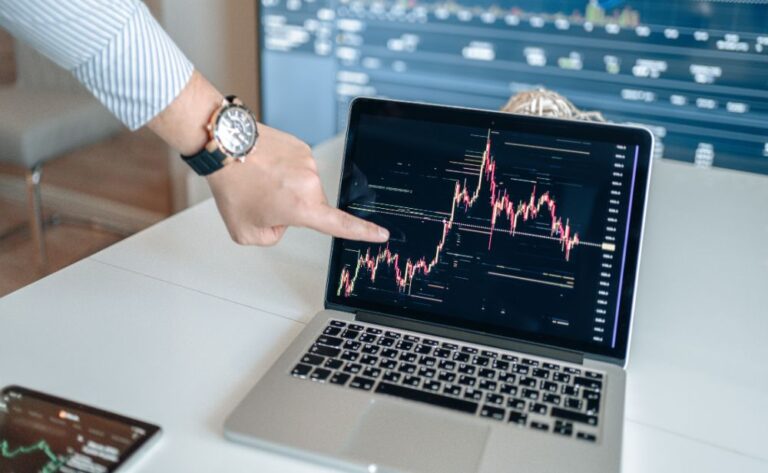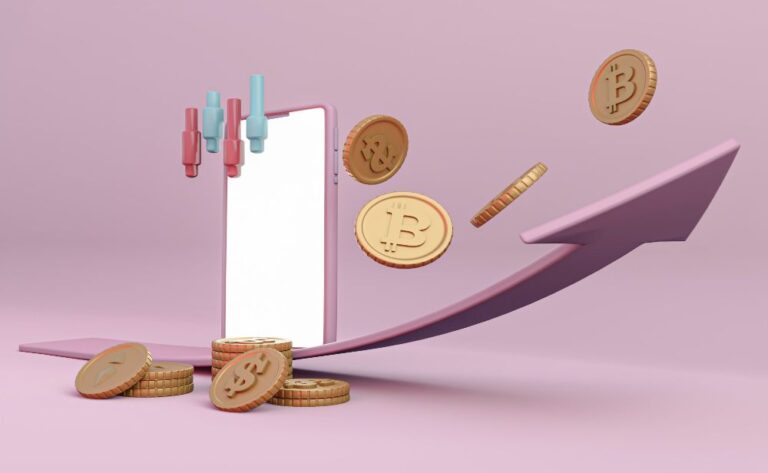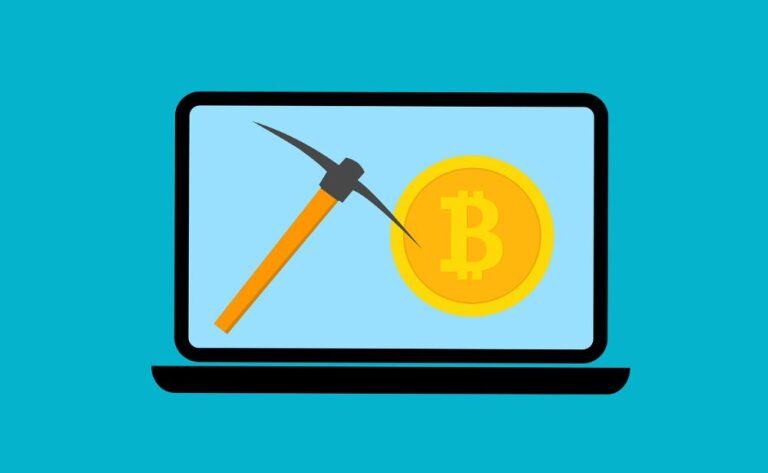The Best Crypto Exchanges Of 2022

Methodology
We conducted a comprehensive evaluation of the features and options provided by approximately 25 cryptocurrency exchanges, crypto trading apps, and brokerage platforms with crypto trading options.
The trading fees displayed for each brokerage or cryptocurrency exchange are the trading fees for the lowest volume of trades on the platform’s most basic version.
The data covered ten crucial variables for evaluating the quality of each platform:
• Fundamental Trading Features Key variables were the amount of tradable cryptocurrencies, the number of fiat currencies accepted, the overall liquidity of the exchange, and trading fees.
• Advanced Trading Capabilities For frequent trading, we examined the availability of complicated trading features such as advanced order types and volume discounts.
• Margin Trading. If relevant, an assessment of margin trading rates.
• Platform Accessibility While some of the finest cryptocurrency exchanges are accessible worldwide, the accessibility of other features varies greatly by region and U.S. state.
• Customer Support. Types of customer support available
• Educational Materials. We assessed each platform’s educational material.
• Cryptocurrency Reward Credit Card Few platforms offer credit cards with cryptocurrency benefits.
• Protection and storage Types of storage options, available security and insurance, as well as an analysis of any major breaches of any exchange over its lifespan.
• Gambling and Gains. Some sites permit users to stake select cryptocurrencies and get interest payments.
• Bitcoin Lending. Some cryptocurrency exchanges permit users to lend their coin to others.
These ten variables compare the characteristics and options of the surveyed crypto exchanges and brokerages.
For each ranking, the sum of weighted values across all or some of these important parameters was used to determine the overall position of each brokerage or exchange. Margin trading, platform lending, and advanced trading were not taken into account when selecting the top cryptocurrency exchanges for beginners.
How Does a Cryptocurrency Exchange Work?
A cryptocurrency exchange is a marketplace where cryptocurrencies such as Bitcoin, Ether, and Dogecoin may be bought and sold. Cryptocurrency exchanges function similarly to other trading platforms with which you may be familiar. They offer accounts via which you can establish various order types to buy, sell, and speculate on the cryptocurrency market.
Some cryptocurrency exchanges allow complex trading capabilities such as margin accounts and futures trading, however these options are less usually available to U.S.-based users. Others provide features such as crypto staking and crypto loans that enable you to earn income on your cryptocurrency holdings. The finest exchanges include instructional resources to keep you up-to-date on all aspects of cryptocurrency.
Diverse Types of Cryptocurrency Exchanges
Generally speaking, there are two types of cryptocurrency exchanges: centralised and decentralised. Every classification has its own perks and downsides.
Centralized Markets
Centralized cryptocurrency exchanges (CEX) are operated by a single entity. Centralized exchanges facilitate entry into cryptocurrency trading by enabling users to transfer fiat currencies, such as dollars, directly into cryptocurrencies. The majority of cryptocurrency trading occurs on controlled exchanges.
Some crypto aficionados oppose centralised exchanges because they contradict the cryptocurrency’s decentralised spirit. Even worse, in the opinion of certain crypto users, the corporation or organisation may force users to comply with Know Your Customer (KYC) regulations. In order to combat money laundering and fraud, these require each user to disclose their identify, much like opening a bank account.
Hacking is an additional concern with centralised exchanges. With a CEX, the exchange holds the cryptocurrencies traded on its platform — at least temporarily, while trades are processed — increasing the risk of hackers stealing assets.
In recent years, centralised crypto exchanges have increased security in response to this issue. Among other measures, they now store the majority of customer assets offline and purchase insurance to cover crypto losses in the event of a hack.
If you like the convenience of a centralised exchange, you can lower your risk by transferring your cryptocurrency to a hot or cold wallet located off-exchange.
Decentralized Markets
DEXs spread the task of facilitating and confirming crypto trades. Anyone who joins a DEX network can vouch for transactions, similar to how bitcoin blockchains function. This may promote accountability and transparency and ensure that an exchange can continue to operate regardless of the status of the organisation that founded it.
The issue is that decentralised exchanges are significantly less user-friendly, both in terms of interface and currency conversion. For instance, decentralised exchanges do not always permit customers to deposit dollars and swap them for bitcoin. This implies you must either already possess cryptocurrency or use a centralised exchange to acquire cryptocurrency for use on a DEX.
You will also likely engage in peer-to-peer transactions. This implies it may take longer to locate a buyer, and if liquidity is low, you may have to make price concessions in order to purchase or sell a low-volume cryptocurrency swiftly.
Global Blockchain Exchanges
Globally, there are over 600 cryptocurrency exchanges where investors can trade bitcoin, ethereum, and other digital assets. However, pricing, quality, and security vary greatly. Forbes Digital Assets listed the top 60 cryptocurrency exchanges in the world based on regulatory compliance.
Cryptocurrency Exchange Fees
When you buy and sell cryptocurrencies, you incur two sorts of fees: trading fees and withdrawal fees.
Trading Fees
Trading costs may be levied as a flat percentage of the amount of crypto you purchase or sell, or an exchange may charge a variable percentage for orders that are makers vs ones that are takers.
Makers are, at a fundamental level, orders that bring liquidity to an exchange; they do not fulfil existing orders. Takers, meanwhile, deplete an exchange’s liquidity by executing orders that are awaiting a transaction. Maker fees are often significantly lower than taker fees, however this is not always the case.
While you should ideally select an exchange with the lowest fees, it can be detrimental to focus excessively on maker and taker expenses. You cannot select whether your order will be processed as a maker or a taker. You might be better off examining the overall fees and any reductions for trading a specific monthly volume or holding an exchange’s native coin.
Notably, although some cryptocurrency investment apps advertise to charge no fees, this is not always the case. In lieu of a flat fee, they charge a spread, which is the difference between the rates at which they purchase and sell cryptocurrency. Spreads can, and often do, end up being significantly more expensive than a percentage trading fee.
Withdrawal Fees
Many exchanges charge withdrawal fees for cryptocurrencies. This can be problematic if you desire to transfer your cryptocurrency to a secure third-party wallet or to a different exchange. Typically, withdrawal costs differ each cryptocurrency.
If you intend to move your cryptocurrency off of an exchange, you should select a platform like Gemini that permits a limited number of fee-free withdrawals.
Other Costs
When you engage in more complex trading tactics, such as margin trading, you incur additional borrowing costs. Coinbase and Gemini, two of the most user-friendly cryptocurrency exchanges, offer quick-buy features with higher costs. By knowing how to purchase and sell on an exchange’s trading platform, you can prevent them.
If you make transactions with a credit card or debit card, both the exchange and your card issuer may charge you a surcharge. Therefore, it is advisable to purchase cryptocurrency with cash or wire transfers.
How to Pick a Cryptocurrency Exchange
Consider, in addition to costs, security, trading volumes, instructional materials, and whether an exchange lists the cryptocurrencies you’re interested in purchasing when selecting the best cryptocurrency exchange for your needs.
Security
As crypto has gotten more popular and valuable, hackers have been increasingly interested in it. The hacking of prominent cryptocurrency exchanges such as Binance and KuCoin has resulted in tens of millions of dollars in losses. Although exchanges frequently reimburse those whose coins are stolen, nobody wants to be in this position.
Spreading your bitcoin purchases over various exchanges can reduce your risk. Alternately, make it a practise to transfer your cryptocurrency holdings from an exchange’s default wallet to your own “cold” wallet. These storage alternatives are not connected to the internet, making them nearly impossible to steal; nonetheless, you must carefully note your passcode or you may lose access to your cryptocurrency permanently.
Available Coins
Examine the accessible cryptocurrencies on a certain exchange with care. You may be alright utilising a cryptocurrency exchange that trades merely a few coins. In contrast, if you are a crypto enthusiast, you may desire access to all of the more than 600 cryptocurrencies offered on Gate.io.
Trading Volume
The availability of coins alone is insufficient if no exchanges are taking place. You should verify that there is sufficient trading volume in your target currencies to provide liquidity, allowing you to trade your coins and dollars with ease.
Low-volume marketplaces could cost you on sales. Slippage is when an order is placed when there is insufficient demand. You might purchase at a greater price or sell at a cheaper price than desired.
If you are a skilled crypto trader, you may want to ensure that your desired exchange offers the trading kinds and margin you like, such as limit orders, which can minimise slippage by setting a fixed price. Remember that trading kinds including the latter are still evolving in the United States, thus the offerings of different exchanges may alter over time.
Educational Materials
If you are new to cryptocurrencies, you should seek for a user-friendly platform with a wealth of instructional materials to assist you comprehend this complex, rapidly evolving market.
Accessibility
Lastly, do not assume that an exchange is accessible in your country or state simply because you can visit its website. Numerous state and federal governments are currently determining how they will legally and fiscally manage cryptocurrencies.
FAQs for Crypto Exchanges
What exactly is a cryptocurrency exchange?
A cryptocurrency exchange is a marketplace where cryptocurrencies such as Bitcoin, Ether, and Dogecoin may be bought and sold.
How do cryptocurrency exchanges operate?
Cryptocurrency exchanges operate similarly to brokerage platforms in that they each provide a portal where you may place orders to buy, sell, and speculate on cryptocurrencies with other users.
Cryptocurrency exchanges can be centralised or decentralised. Centralized exchanges are managed by a single corporate body, such as a brokerage firm that ensures the security of deals.
Similar to bitcoin blockchains, decentralised exchanges typically provide verification powers to anyone willing to join a network and validate transactions. This may promote accountability and transparency and ensure that an exchange can continue to operate if the company responsible for its operation goes out of business.
How do you buy crypto?
To purchase bitcoin, you must open an account with a crypto exchange or online brokerage that facilitates crypto trading. You will also need a crypto wallet to store your bitcoin, but your exchange may provide one.
Be cautious when choosing a cryptocurrency exchange. Some cryptocurrency trading applications, such as PayPal or Venmo, prohibit the movement of coins off the platform. This is a significant limitation for crypto investors.
After selecting an exchange and a wallet, you will be able to purchase cryptocurrency by depositing U.S. money by ACH or wire transfer. You may be able to purchase cryptocurrencies with a credit or debit card. This may, however, incur additional fees, some of which may be rather substantial.
Some crypto exchanges allow you to fund transactions using other cryptocurrencies or their branded stablecoins, such as Binance Coin (BNB) on Binance.US.
How much money is required to acquire cryptocurrency?
Exchanges have varying restrictions, frequently based on the sort of cryptocurrency you wish to purchase.
You might purchase fractional shares of coins for cents or a few dollars. Check the requirements of your chosen cryptocurrency exchange for the coin you wish to purchase.
How can I register for a cryptocurrency exchange?
To open an account with a cryptocurrency exchange, browse its website or download its app.
Every cryptocurrency exchange has its own registration process. With some exchanges, you may be able to create an account and purchase and sell small quantities of cryptocurrency without authenticating your identity or providing a great deal of sensitive data.
As the sector has developed, however, the U.S. government has enacted Know Your Customer requirements to prevent money laundering and fraud.
Typically, you will need to provide:
• Name
• Age at birth
• Mailing address
• Identification number assigned by the Social Security Administration
You may also be required to submit a photo or scan of a government-issued ID to verify your identification.





